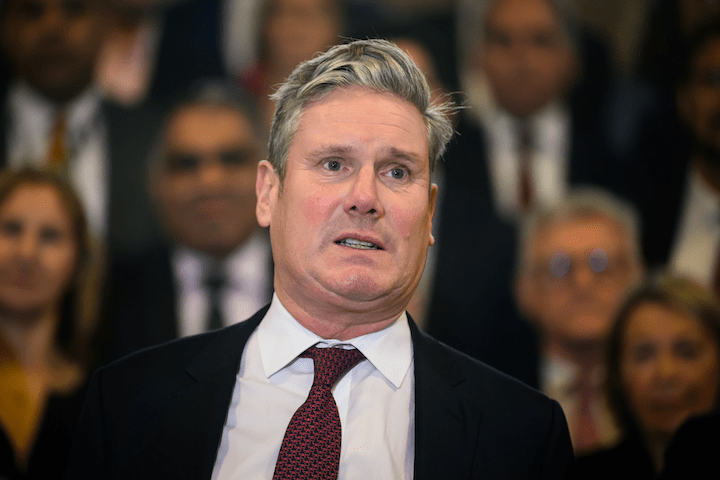For a politician who has set much store by being pretty boring, Keir Starmer seems to be enjoying his current provocative spell. His desire to shake up the ‘nonsense’ bureaucracy in the NHS makes the Sunday Telegraph splash and was a key feature of his interview this morning with Laura Kuenssberg. He argued that ‘the reason I want to reform the NHS is I want to preserve it’ and ‘I think if we don’t reform the health service it will be in managed decline’.
The Labour leader was insistent on the BBC that he didn’t want to touch the ‘founding principle of the NHS’, that it remained free at the point of use, but added that he had tasked his frontbenchers with coming up with ways the public services in their portfolios needed to be reformed. He said he disagreed with those who thought the NHS and other services should always stay the same – something he and his team know will annoy a certain section of the Labour party. He will also irritate a lot of people in the healthcare world by doubling down on Wes Streeting’s plan to reform the GP contract, which at one stage seemed to be the shadow health secretary freelancing rather than an official Labour policy.
But it just so happens that Starmer is talking about something that the public has a greater appetite for than usual, given the state of the health service (he argued the NHS was at its worst in its entire history). So he’s not provoking the group he’s actually bothered about. That’s also the case for the number of things the Labour leader has promised and then backtracked on, which he was asked about extensively in the Kuenssberg interview. His arguments about why he had abandoned pledges on ending outsourcing in the NHS, on Brexit and tuition fees weren’t very strong. The Labour leader told Kuenssberg: ‘When I was running for leader, I made pledges that reflected my values. Since then, we’re now, what, three years on, a lot has changed.’
He leant heavily on Covid, the war in Ukraine and the ‘huge damage to our economy’ wrought by the Tory party. Incidentally, whenever the Tories use those excuses, Starmer and his top team ridicule them for dodging responsibility. It’s almost as though he’s not particularly worried about the public even noticing the disparity between leadership campaign Starmer and the one preparing for the next general election.







Comments